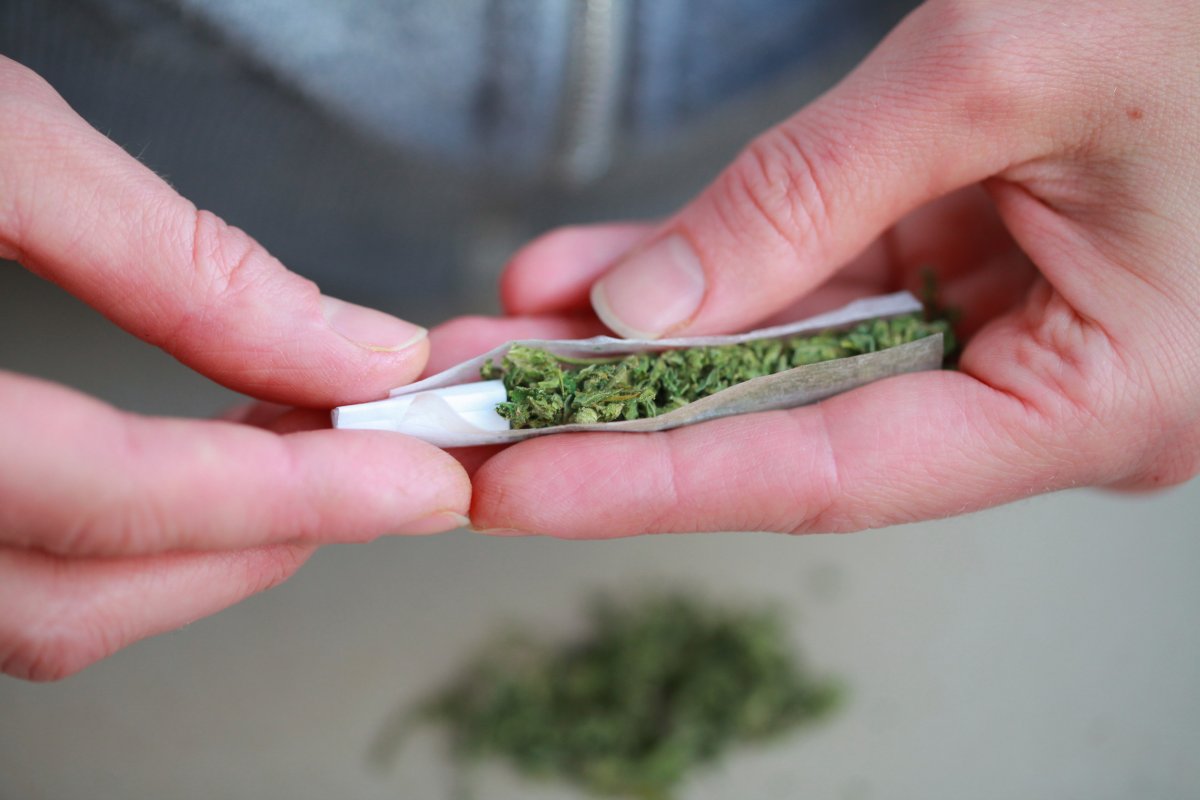Women shouldn't use cannabis and/or alcohol during pregnancy, warn scientists who examined the potential harm in animals.
In one of the studies published in the journal Birth Defects Research, Kristen R. Breit of San Diego State University and colleagues used pregnant rats to investigate how using the substances affects the behavioral development of the rodents' offspring.
Researchers gave the rats substances similar to alcohol and cannabis from the human equivalent of the third trimester. They then observed their babies.
Professor Jennifer D. Thomas, co-director of the Center for Behavioral Teratology at San Diego State University who co-authored the rodent study told Newsweek: "Although it has been known that prenatal alcohol exposure can adversely affect later behavioral development, this study suggests that prenatal cannabis exposure can also influence behavioral development, and that effects may be more severe when combined with alcohol.
"These results are important, as pregnant women may not be aware that cannabis could be harmful to their child," warned Thomas.
However, Breit, a research scientist at the Center for Behavioral Teratology, told Newsweek their study only examined one dose of each substance, while in the real world cannabis products vary in their constituents.
"So it will be important to understand how the combination of different cannabinoids and doses that are consumed today affect prenatal development," said Beit.
The team argued that while the harmful side effects of alcohol are well understood, there isn't such a consensus when it comes to cannabis use before and during pregnancy. Cannabis is the drug most often used by women who binge-drink during pregnancy, they said, citing a study which found around half of pregnant women who said they used cannabis also consumed alcohol.

The second study saw researchers study the effects of exposing zebrafish embryos to alcohol and a cannabis ingredient at different stages of development.
The zebrafish is a useful animal for scientists to study as it shares 84 percent of the genes that cause disease in humans.
Similarly to the authors of the other study, the team looked at outcomes in the offspring. They also looked at a gene linked to fetal alcohol spectrum disorders (FASD). That is the name for conditions which can develop when an expectant mother drinks during pregnancy.
These babies might be born with abnormal facial features, a smaller than normal head, have a low weight, and struggle with their vision or hearing. It also can affect a child's behavior: making them hyperactive, and struggle with memory and paying attention.
Oswald Boa-Amponsem of North Carolina Central University and his team found that exposing the embryos to high doses of the cannabis ingredients created similar results to those seen in children with FASD.
Gregory Cole, Professor and Chair of the Department of Biological and Biomedical Sciences at North Carolina Central University who co-authored the zebrafish study, told Newsweek: "This study is significant because it indicates that exposure of embryos to even small amounts of alcohol and cannabis during development may have long-term effects on behavior, with alterations in behavior being exhibited during adolescence.
"Especially important is the study shows that there may be no safe level of use of alcohol and cannabis during pregnancy, since the use of both drugs together places the fetus at greater risk."
However, as the studies were conducted in animals more research is needed to confirm if the substances would produce the same results in humans.
The papers are the latest attempt by scientists to understand the potential harms caused by prenatal cannabis use, as more states and countries legalize the substance.
Last week, a group of scientists published a paper in the journal JAMA Network Open which found cannabis use among pregnant women is "rapidly increasing."
The experts who spoke to Newsweek agreed their work suggests its best to avoid use of either alcohol or cannabis during pregnancy.
Steven Kinsey, associate professor in the department of neuroscience at West Virginia University who did not work on the study told Newsweek: "With loosening legal restrictions, cannabis is being marketed increasingly as a natural cure-all. But, the developmental effects of cannabis use are not well understood."
He explained: "The receptors for cannabinoids are located throughout the brain and body. So, although it is not surprising that a strong psychoactive drug would have effects on brain development, it is surprising to see such a large effect on neural development. It was also surprising that the cannabinoid drug worsened the well-known effects of alcohol."
Kelly C. Young-Wolff, a research scientist at Kaiser Permanente Northern California, told Newsweek: "Future research is needed to examine whether pregnant women who use both alcohol and cannabis during pregnancy are more likely to have adverse fetal, neonatal and developmental outcomes relative to those who use either substance on its own."
Dr. Christopher Joseph Hammond, assistant professor of psychiatry and behavioral Sciences at Johns Hopkins Medicine, told Newsweek: "More work needs to be done in this area to clarify if similar birth defects and symptoms are seen in animals that are exposed during gestation to plant-based cannabinoids such as THC and CBD.
"This is particularly important given the increased use of marijuana among pregnant women in America."
This article has been updated with comment from Christopher Hammond.
Uncommon Knowledge
Newsweek is committed to challenging conventional wisdom and finding connections in the search for common ground.
Newsweek is committed to challenging conventional wisdom and finding connections in the search for common ground.
About the writer
Kashmira Gander is Deputy Science Editor at Newsweek. Her interests include health, gender, LGBTQIA+ issues, human rights, subcultures, music, and lifestyle. Her ... Read more
To read how Newsweek uses AI as a newsroom tool, Click here.








